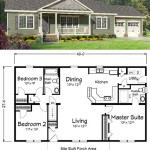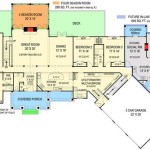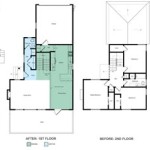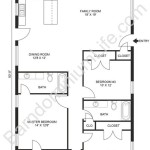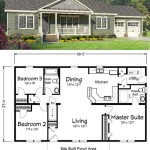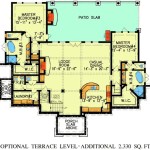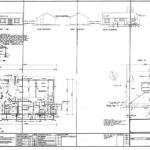House Plans For Flood Zones
If you are considering building a home in a flood zone, it is important to choose a house plan that is designed to withstand flooding. There are a number of different factors to consider when choosing a flood-resistant house plan, including the elevation of the home, the type of foundation, and the materials used in construction.
The elevation of the home is one of the most important factors to consider when choosing a flood-resistant house plan. The higher the home is elevated, the less likely it is to be damaged by flooding. In most cases, homes in flood zones must be elevated to a certain height above the base flood elevation (BFE), which is the level of flooding that has a 1% chance of occurring in any given year.
The type of foundation is also an important factor to consider when choosing a flood-resistant house plan. Homes with crawl spaces are more susceptible to flooding than homes with basements or slabs. This is because crawl spaces can allow water to enter the home from below, while basements and slabs can help to keep water out.
The materials used in construction can also affect the flood resistance of a home. Homes built with flood-resistant materials, such as concrete, brick, and metal, are more likely to withstand flooding than homes built with less flood-resistant materials, such as wood and drywall.
In addition to the factors listed above, there are a number of other things to consider when choosing a flood-resistant house plan. These include the size and shape of the home, the number of stories, and the presence of any attached structures, such as garages and decks.
It is important to work with a qualified architect or engineer when designing a home in a flood zone. A qualified professional can help you to choose a house plan that is designed to withstand flooding and meets all of the requirements of your local building code.
Here are some additional tips for choosing a flood-resistant house plan:
- Choose a house plan that is elevated to the appropriate height above the BFE.
- Choose a house plan with a foundation that is designed to withstand flooding.
- Choose a house plan that is built with flood-resistant materials.
- Consider the size and shape of the home, the number of stories, and the presence of any attached structures when choosing a house plan.
- Work with a qualified architect or engineer when designing a home in a flood zone.
By following these tips, you can choose a flood-resistant house plan that will help to protect your home and your family from the devastating effects of flooding.

Flood Zone Designs N House Design Group

Flood Zone Designs N House Design Group

Elevated 2 Bed House Plan For Flood Prone Areas 22340dr Architectural Designs Plans

Flood Proof House A Designer S View

Flood Zone Designs N House Design Group

10 Best Flood Zone House Plans Ideas Design

Flood Zone Houses An Ideabook By Mo

How Can Architecture Combat Flooding 9 Practical Solutions Archdaily

Flood Zone Houses An Ideabook By Mo

10 Best Flood Zone House Plans Ideas Design


